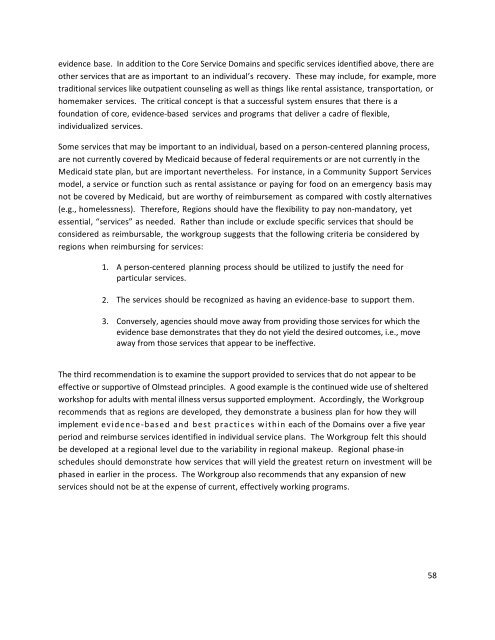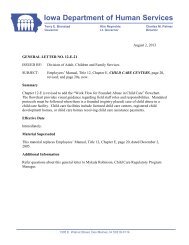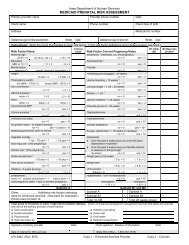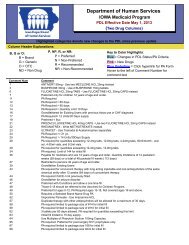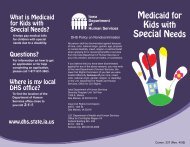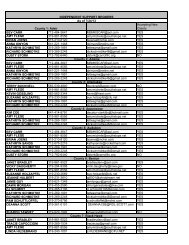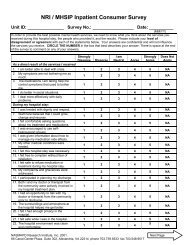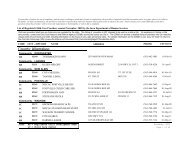Iowa Mental Health and Disability Services System Redesign Interim ...
Iowa Mental Health and Disability Services System Redesign Interim ...
Iowa Mental Health and Disability Services System Redesign Interim ...
- No tags were found...
Create successful ePaper yourself
Turn your PDF publications into a flip-book with our unique Google optimized e-Paper software.
evidence base. In addition to the Core Service Domains <strong>and</strong> specific services identified above, there are<br />
other services that are as important to an individual’s recovery. These may include, for example, more<br />
traditional services like outpatient counseling as well as things like rental assistance, transportation, or<br />
homemaker services. The critical concept is that a successful system ensures that there is a<br />
foundation of core, evidence-based services <strong>and</strong> programs that deliver a cadre of flexible,<br />
individualized services.<br />
Some services that may be important to an individual, based on a person-centered planning process,<br />
are not currently covered by Medicaid because of federal requirements or are not currently in the<br />
Medicaid state plan, but are important nevertheless. For instance, in a Community Support <strong>Services</strong><br />
model, a service or function such as rental assistance or paying for food on an emergency basis may<br />
not be covered by Medicaid, but are worthy of reimbursement as compared with costly alternatives<br />
(e.g., homelessness). Therefore, Regions should have the flexibility to pay non-m<strong>and</strong>atory, yet<br />
essential, “services” as needed. Rather than include or exclude specific services that should be<br />
considered as reimbursable, the workgroup suggests that the following criteria be considered by<br />
regions when reimbursing for services:<br />
1. A person-centered planning process should be utilized to justify the need for<br />
particular services.<br />
2. The services should be recognized as having an evidence-base to support them.<br />
3. Conversely, agencies should move away from providing those services for which the<br />
evidence base demonstrates that they do not yield the desired outcomes, i.e., move<br />
away from those services that appear to be ineffective.<br />
The third recommendation is to examine the support provided to services that do not appear to be<br />
effective or supportive of Olmstead principles. A good example is the continued wide use of sheltered<br />
workshop for adults with mental illness versus supported employment. Accordingly, the Workgroup<br />
recommends that as regions are developed, they demonstrate a business plan for how they will<br />
implement evidence-based <strong>and</strong> best practices within each of the Domains over a five year<br />
period <strong>and</strong> reimburse services identified in individual service plans. The Workgroup felt this should<br />
be developed at a regional level due to the variability in regional makeup. Regional phase-in<br />
schedules should demonstrate how services that will yield the greatest return on investment will be<br />
phased in earlier in the process. The Workgroup also recommends that any expansion of new<br />
services should not be at the expense of current, effectively working programs.<br />
58


